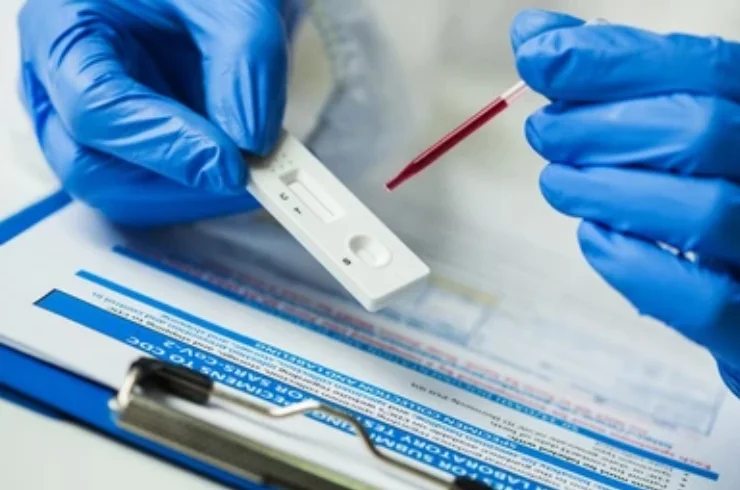Serology Testing

Serology Testing
Serology testing involves the study of blood serum to detect the presence of antibodies, antigens, and immune responses to infections, autoimmune disorders, and other conditions. These tests are vital for diagnosing a variety of infections, monitoring immune status, and identifying past or ongoing diseases.
Key Serology Tests
Dengue Profile:
Detects dengue-specific antibodies (IgM and IgG) to confirm dengue fever and monitor disease progression.Hepatitis Testing:
Identifies hepatitis viruses (A, B, C, D, and E) to diagnose liver infections and assess immunity or carrier states.
HIV Testing:
Detects antibodies or antigens specific to HIV, aiding in early diagnosis and monitoring of the disease.HbsAg Testing:
Identifies the hepatitis B surface antigen, indicating active infection or carrier status.Chikungunya Testing:
Confirms chikungunya infection by detecting specific IgM antibodies.Widal Test:
Diagnoses enteric fever (typhoid) by measuring antibody levels against Salmonella antigens.IgE Level:
Measures immunoglobulin E levels to evaluate allergic conditions and hypersensitivity disorders.VDRL Test:
Screens for syphilis by detecting antibodies produced in response to Treponema pallidum infection.
Why Serology Testing Matters
Serology tests play a crucial role in identifying infections and determining immunity against specific diseases. They help track the spread of infectious diseases, facilitate early diagnosis, and guide treatment decisions. These tests are particularly useful in outbreak situations, prenatal care, and chronic disease management.
Modern serology laboratories use advanced technologies to ensure precise and timely results. Serology testing is an indispensable tool in preventive healthcare, offering accurate insights into the immune system and enabling effective disease management.
